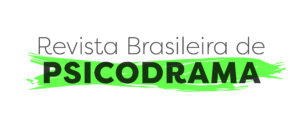Rosa Emilia Moraes, Scientific Journalist at Linceu Editorial, São José dos Campos, SP, Brasil.
 Among psychodramatists, the discussion about the application of therapy in an online format is a pre-pandemic issue. However, with restrictions imposed by Covid 19 when the only possible way to maintain group meetings would be through online platforms, they became no longer an experimental alternative but an emergent reality, giving clients and therapists the opportunity to explore all the peculiarities that this route has to offer.
Among psychodramatists, the discussion about the application of therapy in an online format is a pre-pandemic issue. However, with restrictions imposed by Covid 19 when the only possible way to maintain group meetings would be through online platforms, they became no longer an experimental alternative but an emergent reality, giving clients and therapists the opportunity to explore all the peculiarities that this route has to offer.
However, since the virtual meetings do not bring the group members together in the same physical space, one of the fundamental elements of the psychodramatic method, which is the stage, is lost.
The question then arises: would it be possible, in a virtual environment, to advance through the therapeutic factors of the method – action catharsis, action insight, action learning, corrective emotion experience and reintegration of the new experience – as much as in the therapy room session?
This was the guiding question of the article Interference of different realities when working with online psychodrama and its effect on the protagonist and the group, originally published in Revista Brasileira de Psicodrama V.30, e066.

Image: PIXNIO
Through the analysis of a case experienced by herself in her work as a therapist, Dr. Galabina Tarashoeva, from the Psychodrama Center Orpheus in Sofia, Bulgaria, discusses in her article about the unforeseen effects resulting from an interference in the individual space of a member of the group who was designated as an auxiliary ego, and the impact this had on the collective.
The author describes an online session during a training weekend in which protagonist-centered work took place. However, an unexpected event with a member of the group who would develop the role of auxiliary ego triggered an even deeper process in the protagonist, resulting in an intense and necessary personal experience.
The detailed description of the session and the analysis process by the staff and the group itself is supported by the therapists and trainees notes and in the transcript of the analysis sessions recorded on video. At the time, the author was supervising the training with another colleague, being chosen by the protagonist member to assume the role of main director when the crisis took place in the group and the director in training asked to give up her role, seeing herself unprepared to manage the conflict of trust that arose between the protagonist and the other members of the group.
With this experience, the author concludes that online psychodrama can be as effective as in loco therapy, keeping its specificities and peculiarities. It is a challenge for the therapist to keep control of the setting, and to be prepared to follow the protagonist’s spontaneous process. Psychodrama performed online is then not a precarious form of therapy application, but a new practical format that presents itself, with unfoldings and horizons yet to be explored.
Read more
HUDGINS, M.K. Action Across the Distance with Telemedicine: The Therapeutic Spiral Model to Treat Trauma-Online. In: BROOKE, S.L. (Ed.). Combining the creative therapies with technology: Using social media and online counseling to treat clients. Springfield: Charles C Thomas Publisher, 2017.
PIETA, M.A.M. and GOMES, W.B. Psicoterapia pela Internet: viável ou inviável? Psicologia: Ciência e Profissão [online]. 2014, vol. 34, no. 1, pp. 18-31 [viewed 14 April 2022]. https://doi.org/10.1590/S1414-98932014000100003. Available from: https://www.scielo.br/j/pcp/a/K9ZtTknbWy3tTtGK5ZT9Skf/
To read the article, access
TARASHOEVA, G. Interference of the different realities when working with psychodrama online and its effect on the protagonist and the group. Revista Brasileira de Psicodrama [online]. 2022, vol. 30, e0622 [viewed 14 April 2022]. https://doi.org/10.1590/psicodrama.v30.507. Available from: https://www.scielo.br/j/psicodrama/a/df4kYWFRGQKbMG4kCyM7jVx/abstract/?lang=en
Link(s)
Revista Brasileira de Psicodrama – PSICODRAMA: https://www.scielo.br/j/psicodrama/
Como citar este post [ISO 690/2010]:















Recent Comments